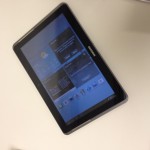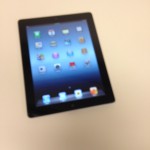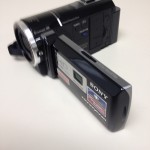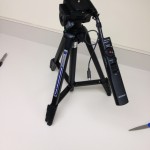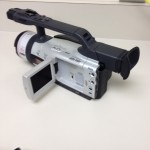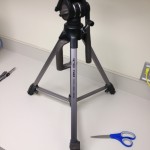Fellow Britts: Welcome back to DevLab.
This post, made on behalf of the DevLab Committee, has four purposes: to invite you to attend an Open House event next week; to provide some basic information about the DevLab space; to tell you about some of our hardware and software resources; and to invite your questions, comments, and suggestions as we strategize for the year ahead.
Open House Events
Even if you don’t read all of the nitty-gritty DevLab details below, please do stop by next week to check out the space. We’ll hold two events: Wednesday, Oct. 16th, from 4:00-5:00 p.m., and Thursday, Oct. 17th, from 1:00-2:00 p.m. Feel free to just pop in and chat for a few minutes, or settle in to explore our treasure trove more fully; our goals are basically to get Britts comfortable using the room and to start some conversations about how our resources can serve your teaching and research needs.
The DevLab Space: Basic Info
DevLab, our dedicated facility for developing research and teaching tools, is located on the lower level of the Stephen C. Hall Building, the new headquarters of Georgia Tech’s Writing and Communication Program. The lab is a cozy and collaborative workshop that can accommodate about ten users at a time; it features several computer stations, lots of wall space for dry-erase brainstorming, and a central table for group work. As you can see in the photo (above), there’s also good deal of storage space for our many devices and accessories (below).
DevLab is full of valuable equipment, so there are two security precautions to note. First, the space should always be kept locked, though of course Britts always have access; ask around to find out the key combination. Second, be aware that there’s a motion-activated anti-theft camera in the room.
Resources: Hardware
Last week, we conducted a thorough inventory, so we now know what we’ve got and where it all lives. Come look at it, test it, use it — or sign out a tablet or a camera to use in your classroom. I’ll list some of the hardware highlights:
Desktops
- (3) iMac (3.4ghz i7, 20GB RAM, 1TB HD, Superdrive, SD Card slot, 10.6.8)
- (2) Dell Optiplex 990 (3.4ghz i7, 16GB RAM,1TB HD, BR, 4 front USB slots, Win 7 64bit SP1)
Color Printer and Scanner
- HP Color Laserjet 3600n
- HP Scanjet 5590
- (2) Apple iPad
- (2) Samsung Galaxy Tab 2 10.1
Digital Storage
- (2) Seagate 2 TB External USB Hard Drive
- Sony Handycam HDR-PJ260, with tripod
- Canon Digital Video Camera DM-GL2 A, with tripod
Sound Recording
- Boss Digital Recorder Micro BR
- Sony Camera Microphone ECM-HST1
- Free Way Wireless Microphone Transmitter ATW-T201
- Audio Technica Wireless Microphone Receiver ATW-r250
More Devices
- Samsung DVD Recorder DVD-R157
- JVC MiniDV to DVD Recorder SR-DVM600
- Xenyx 502 Mixer
- Apple External USB Super Drive
- Apple Wireless Keyboard
- Apple Wireless Mighty Mouse
- (3) Xbox 360 Wireless Controller
- Assorted mice, adapters, headphones, cables, and more
In the Sound Studio
- Dell Optiplex 990 (3.4ghz i7, 16GB RAM,1TB HD, BR, 4 front USB slots, Win 7 64bit SP1)
- Logitech HD 720p USB webcam
- Logitech speakers and subwoofer
- Xenyx 802 2-microphone input mixer
- Uncontrol UCA200 RCA audio to USB
- Behringer HPS3000 headphones
- Behringer HPM1000 headphones
- (2) Behringer XM8500 microphone
Resources: Software
Here’s a list of what’s installed on our workhorse desktop PCs and iMacs. If you need a program but don’t see it below, let us know; we want to get it.
Macs
- Adobe Acrobat Pro CS5
- Adobe After Effects CS5
- Adobe Dreamweaver CS5
- Adobe Encore CS5
- Adobe Flash CS5
- Adobe Illustrator CS5
- Adobe Indesign CS5
- Adobe Photoshop CS5
- Adobe Premiere Pro CS5
- Adobe Story CS5
- Arduino 1
- Blender 2.62
- Eclipse 3.7
- Eclipse C++ 3.7
- EndNote X5 15.0.0.7473
- FileZilla 3.5.3
- Fugu 1.2.0
- Handbrake 0.9.5
- iTunes 11.1
- MacOS X Snow Leopard 10.6.8
- Maya 2012
- Microsoft Excel 2011 14.1.0
- Microsoft Office 2011
- Microsoft PowerPoint 2011 14.1.0
- Microsoft Word 2011 14.1.0
- MPEG Steamclip 1.9.2
- Processing 1.5.1
- Second Life Viewer 3.2.8.248931
- Skype 5.5.0.2340
- TextWrangler 3.5.3
- VLC 2.0.0
- WMV Player 2.4.1.4
- Xcode 3.2.3
PCs
-
Adobe Acrobat X 10.1.8
- Adobe After Effects CS5.5 10.5
-
Adobe Bridge CS5.1 4.1
- Adobe Dreamweaver CS5.5 11.5
- Adobe Encore CS5.1 5.1
- Adobe Fireworks CS5.1 11.1
- Adobe Flash Professional CS5.5 11.5
- Adobe Illustrator CS5.1 15.1
- Adobe InDesign CS5.5 7.5
- Adobe LiveCycle Designer ES2 9.0
- Adobe Media Encoder CS5.5 5.5
- Adobe Photoshop CS5.1 12.1
- Adobe Premiere Pro CS5.5 5.5
- Adobe Reader XI 11.0.4
- Adobe Story (Beta) 1.0
- CamStudio (RenderSoft) 2.0
- FileZilla FTP 3.7.3
- Firefox (Mozilla) 24
- Google Chrome 30.0
- Internet Explorer 9
- iTunes 11.1
- Microsoft Access 2010 14.0
- Microsoft Excel 2010 14.0
- Microsoft InfoPath Designer 2010 14.0
- Microsoft InfoPath Filler 2010 14.0
- Microsoft OneNote 2010 14.0
- Microsoft Outlook 2010 14.0
- Microsoft PowerPoint 2010 14.0
- Microsoft Publisher 2010 14.0
- Microsoft SharePoint Workspace 2010 14.0
- Microsoft Visual Studio 2010 10.0
- Microsoft Word 2010 14.0
- NetBeans IDE 7.0.1
- PowerISO 4.9
- QuickTime Player 7.7.4
- SecureCRT 6.7.2
- Trillian 5.3
- VLC Media Player 2.1.0
- Windows 7 Enterprise (OS) SP1
- Windows DVD Maker
- Windows Media Center 6.1
- Windows Media Player 12.0
- WinSCP 5.1.7
We Want Your Input
We’d love to hear from you about how DevLab can better serve your needs; comments, questions, and suggestions are more than welcome.


